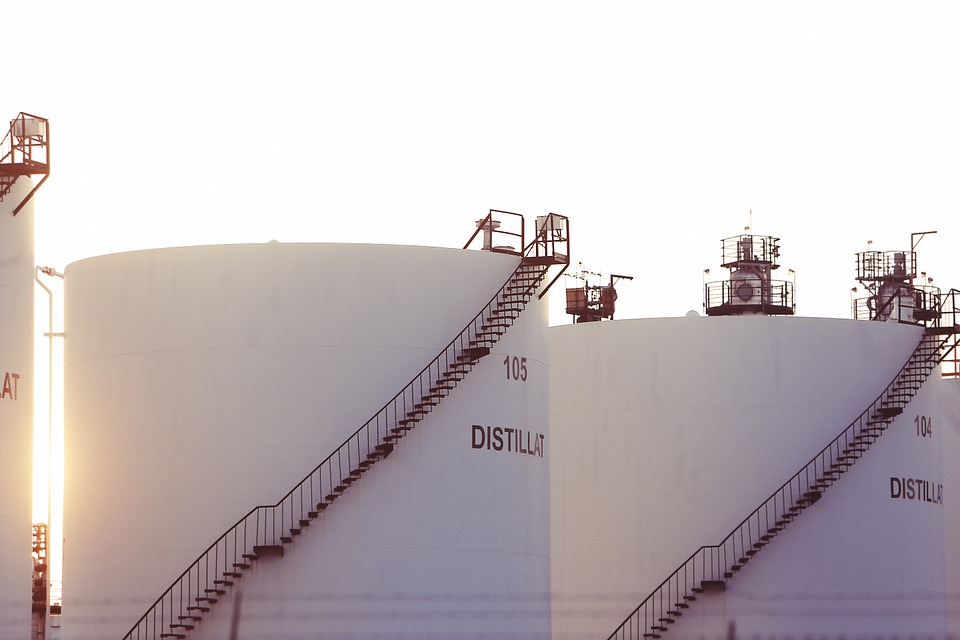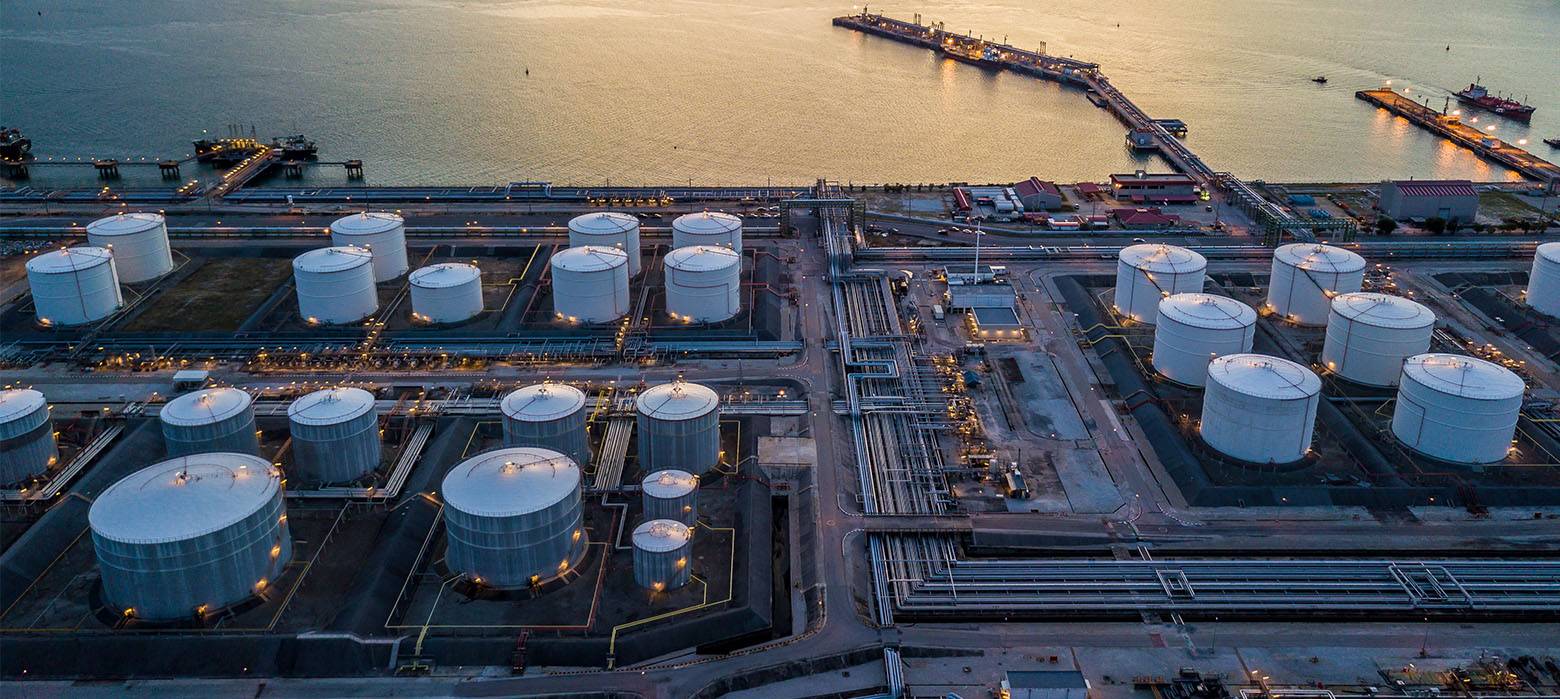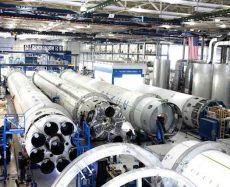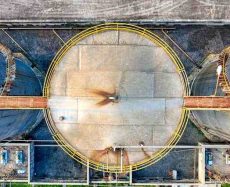
- admin
- January 21, 2019
3 Materials Used for the Construction of Industrial Storage Tanks
Industrial storage tanks are specially designed containers used to hold compressed gases and liquids.
Storage tanks are made of materials that are capable of meeting the requirements coming with storage of different liquids and gases.
The most popularly used materials for constructing storage tanks are concrete and steel. However, the popularity of polyethylene, thermoplastic, and glass-reinforced plastic (fiberglass) is also increasing.
These materials offer higher chemical resistance and lower build costs, especially for storing specialty chemicals.
Here we are briefly discussing industrial storage tanks made of steel, concrete, and fiberglass.
Steel Industrial Storage Tanks
Steel storage tanks are widely used owing to their durability and effectiveness. Due to these qualities, steel tanks have wide applications in industrial, commercial, and residential establishments.
Steel storage tanks can be used for storing various liquids including diesel fuel, petroleum, chlorine, lube oil, chemicals, wastewater, potable water, and rainwater.
The advantages of steel storage tanks are:
- Steel storage tanks have higher cost effectiveness than tanks made of other materials.
- Tanks made of stainless steel are resistant to U.V rays, fire, rust, and have a good longevity even without painting.
Steel has great versatility. Its durability and resistance to corrosion makes it suitable for a broad range of storage applications as steel tanks.
Concrete Industrial Storage Tanks
Concrete storage tanks are widely used in the waste water and water industry. Concrete water storage tanks make the oldest among water tank types.
They have a good longevity and are strong. They are of various shapes like circular, rectangular, etc. Concrete water tanks are made of enforcement or reinforced cement concrete./
The advantages of concrete water tanks are:
- Concrete water tanks have higher durability than plastic water tanks.
- They have a good longevity, if they are maintained well.
- They keep water clean and cold compared to plastic water tanks.
- They can be cleaned more easily than plastic water tanks.
The applications of concrete storage tanks are:
- Sewage industry
- Dirty water collection
- Rainwater harvesting
- Water reservoir
Fiberglass Industrial Storage Tanks
Fiberglass storage tanks can have capacities ranging up to around 300 tons. They are one of the most popular media for underground as well as above ground storage of a number of substances – from industrial chemicals, to water and fuel, and other liquids.
A noteworthy quality of fiberglass tanks is that they can resist both external corrosion and internal corrosion.
The advantages of fiberglass storage tanks are:</p
- Fiberglass tanks are a more economical choice than concrete tanks, especially for large to medium capacity systems.
- Fiberglass tanks have extreme durability and tightness. In comparison with other materials, fiberglass provides several benefits, like it doesn’t have any structural weakness, doesn’t undergo any external or internal corrosion, and doesn’t undergo any deterioration over time.
- Fiberglass tanks need no waterproofing coating or maintenance program due to its impermeable and mono hull nature.
- Fiberglass tanks are much lighter than comparable concrete tanks. This lightness simplifies relocation, installation, and transportation.
- Fiberglass tanks are more salable compared to concrete tanks.
Each material used to construct industrial storage tanks comes with its unique set of merits and demerits. Determine your storage needs first to decide which material would be the best fit for your storage tanks.
- Construction of Industrial Storage Tanks
- Industrial Storage Tanks
- Storage tanks
Category
- Above Ground Fuel Tanks
- Above Ground Gas Storage Tank
- Above Ground Storage Tanks
- Above Ground Water Storage Tanks
- Agricultural Tanks
- Chemical storage Tanks
- Diesel Fuel Storage Tanks
- Diesel Storage Tanks
- Exernal FloatingRoof Tanks
- Farm Water Tank
- Fiberglass Oil Tanks
- Fiberglass Septic Tanks
- Fiberglass Underground Fuel Storage Tanks
- Field Erected Tanks
- Floating Roof Tank
- Fuel tank
- Industrial Chemical Storage Tanks
- Industrial Gas Tanks
- Industrial Plastic Tanks
- Industrial Storage Tanks
- Industrial Tank heating pads
- industrial tanks
- Natural gas
- Natural gas vs Propane
- oil storage tank
- Oil Storage Tanks
- Peracitic Acid
- Petroleum Tanks
- Residential gasoline storage tanks
- Residential Water Storage Tanks
- Sodium Hydroxide Storage Requirements
- Sodium Hypochlorite Storage Tanks
- storage tank failure prevention
- Storage Tanks
- Sulfuric Acid Tanks
- Uncategorized
- UnderGround Storage Tanks
- Water Storage Tanks

 Tank Size Calculator
Tank Size Calculator






